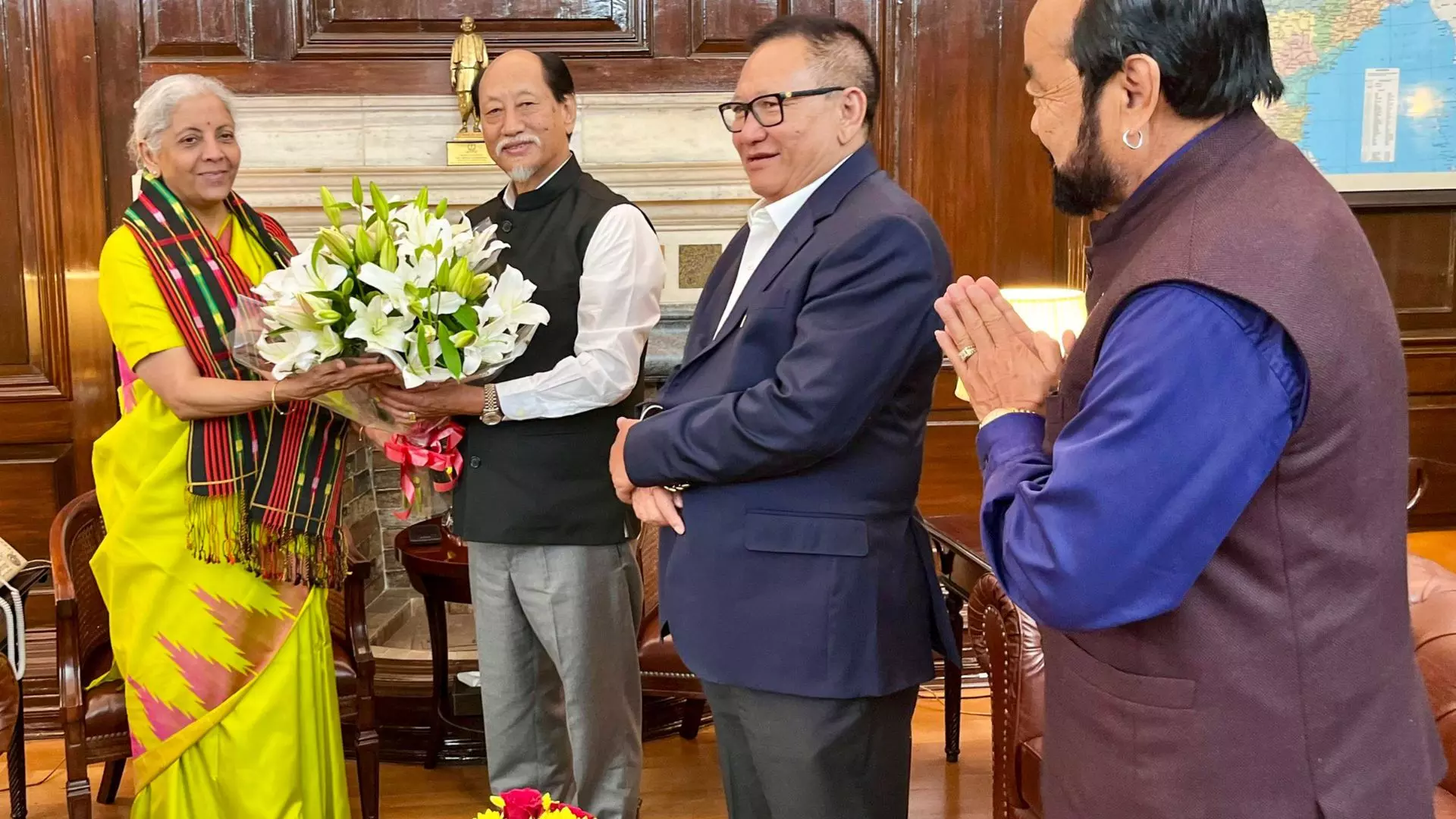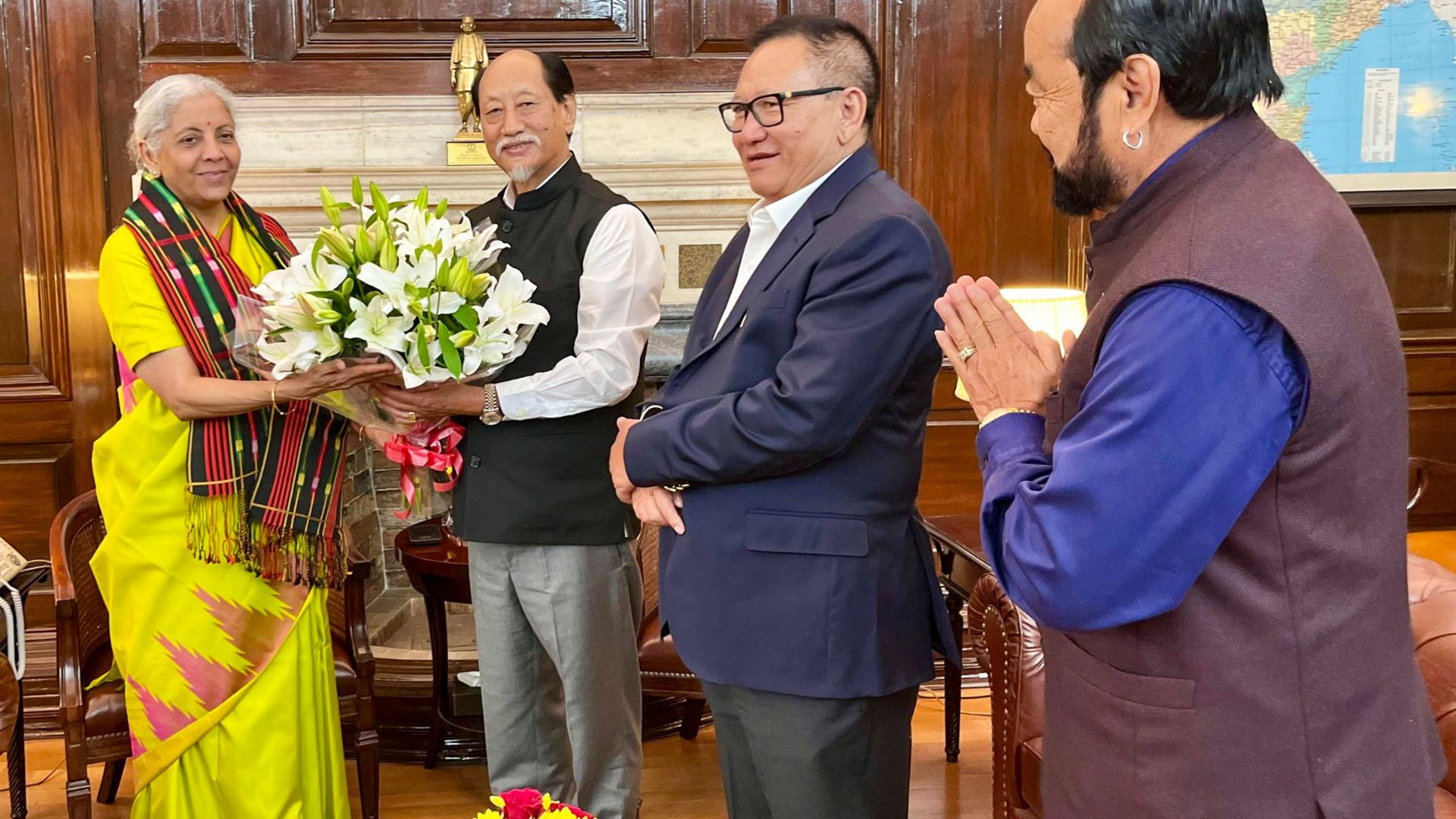
Twenty-seven years after a landmark ceasefire, and 600 rounds of negotiations later, the peace talks between the rebel National Socialist Council of Nagaland (Isak-Muivah), or NSCN(I-M), and the Government of India has reached a near tipping point. The NSCN(I-M), like the first Naga insurgent group Naga National Council (NNC), took up arms to achieve a sovereign Naga homeland. Later, in course of the negotiations with New Delhi that began after the August 1, 1997 truce, the NSCN(I-M) obviously agreed to reach a solution within the framework of the Indian Constitution.
However, the rebel outfit always said it would not compromise on its dignity and honour and wanted a separate flag and constitution (Yezhabo) for the Nagas.
After keeping mum or saying nothing concrete on these two demands of the NSCN(I-M), which the outfit, in course of time, came to call its “core issue”, the Government of India finally said no to a separate flag and constitution for the Nagas. Two senior Naga political leaders that this writer spoke to in recent weeks quoted Union home minister Amit Shah as saying that the Centre cannot concede any of these two demands of the NSCN(I-M). Former Nagaland chief minister S.C. Jamir quoted Amit Shah as saying that India was a sovereign nation where there can be only one flag, one Constitution and one Prime Minister. Nagaland deputy chief minister T.R. Zeliang, who met Mr Shah earlier this month along with chief minister Neiphiu Rio and the other deputy chief minister Y. Patton, also quoted the Union home minister as saying on similar lines as stated by Mr Jamir.
A day after S.C. Jamir, also a former governor, met Mr Shah in New Delhi, the NSCN(I-M) made the most belligerent statement in recent years, threatening to resume its armed struggle and resort to a violent armed resistance against India in order to defend, what it calls, the unique history and sovereign existence of “Nagalim”, or a Naga homeland. In a lengthy five-page statement issued on November 7 by NSCN(I-M) general secretary Thuingaleng Muivah, who is also the Ato Kilonser, or “prime minister”, the NSCN(I-M) leader said that the Government of India may now impose a political agreement that will not respect and honour the Framework Agreement of August 3, 2015 in letter and spirit. The Framework Agreement was signed by the Government of India and the NSCN(I-M) amid much fanfare and the ceremony took place in presence of Prime Minister Narendra Modi and Mr Muivah and was supposed to be the basis on which the final Naga peace accord was to be reached.
In its most direct confrontation with New Delhi ever since the 1997 ceasefire, the NSCN(I-M) general secretary said that if there were to be any violent faceoff between India and what he called “Nagalim”, it would be on account of not honouring the 2015 Framework Agreement. Mr Muivah, in his statement, once again made it clear, that an honourable political settlement can only be expected if the Government of India officially recognised and acknowledged a sovereign flag and constitution for “Nagalim” in any political agreement that may come.
Significantly, the NSCN(I-M) general secretary also said that his group would like to propose a third-party intervention to ensure that the 2015 Framework Agreement is honoured in letter and spirit by the authorities. Mr Muivah also said that if such a political initiative was rejected by the Centre, the NSCN(I-M) will resume a violent armed resistance to protect what he called “Nagalim” sovereignty, freedom and its unique history. Clearly, this can be seen as a threat by the NSCN(I-M) to call off the ceasefire that has succeeded in holding on for the past 27 years.
The NSCN(I-M) threat and New Delhi’s firm stand against a separate flag and constitution has brought the Naga peace process back to square one. After all, following the scrapping of Article 370 and the drastic changes that Jammu & Kashmir has seen, New Delhi is in no position to grant concessions on symbols like a separate flag anywhere else in the country. Several questions arise: if the deadlock with the NSCN(I-M) cannot be broken, will the Government of India go ahead and sign a peace agreement with the conglomerate of non-NSCN(I-M) rebel groups that goes under the umbrella called the Naga National Political Groups, or NNPGs? Like the NSCN(I-M) which signed the Framework Agreement in 2015, the NNPGs signed what is called the Agreed Positions in 2017. Now, the NNPG is of the opinion that talks with the Government of India, as far as the group is concerned, are over and that it is ready to sign a peace accord. But the big question is whether a Naga peace accord signed without a key stakeholder like the NSCN(I-M) can bring lasting peace in the Naga areas because society there is divided with sections backing the NSCN(I-M) and others backing the NNPG.
Again, the question to be asked is on what strength is the NSCN(I-M) leader threatening to take up arms and resume what he called the “armed resistance”? Does it mean that the NSCN(I-M) has been preparing to wage an armed struggle again even while engaging in a dialogue with New Delhi? Is it possible that the NSCN(I-M) may have already sent off a sizeable batch of fighters to the jungles to be battle-ready in case the talks fail? Is it likely that the NSCN(I-M) has the backing of elements in Myanmar and China, the two nations where its cadres had an easy access in the past? Of course, there are people who would simply like to believe that after being in a comfort zone as normal civilians for close to three decades, it would be difficult for the NSCN(I-M) leadership to order its cadres back to the jungles.
What could the Naga peace facilitators do now? Well, the biggest facilitator is the Nagaland government headed by chief minister Rio. In fact, there is an Opposition-less government in Nagaland for quite some time now and the idea of not having any Opposition is to facilitate the Naga peace process as one voice. The Nagaland government has set up a political affairs committee on the Naga issue and this committee has recommended appointment of a new interlocutor at the political level, possibly a Union minister. Earlier this month, Mr Rio and his team once again placed this demand before Amit Shah during their meeting in New Delhi. But the Union home minister apparently told Team Rio to tell the NSCN(I-M) to reconsider its demand for a separate flag and constitution. The Naga bind, in this backdrop, will most certainly continue.
